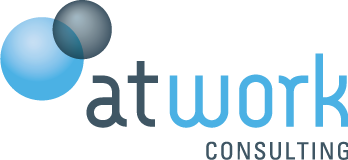What are perks?
Do you offer a range of perks at your workplace? Employee perks are non-wage offerings given to employees that extend the total offer beyond base salary and benefits. Some are directly financial (and either included in total salary or provided as discounted services), while others are non-financial benefits*.
The US-based xoxoday says that examples of ‘perks at work’ can include health insurance, flexible work hours, gym memberships, childcare services, company-sponsored events, retirement plans, or discounts on products and services. All are intended to enhance employee satisfaction and motivation, and potentially also overall wellbeing in the workplace.
Do perks matter?
Two recent surveys were telling in terms of how important these benefits are, and which ones in particular are trending in 2024.
In the first, a recent survey of over 300 Australian hiring managers found that almost two-thirds have had a candidate accept a job opportunity as a result of the company’s employee benefits and perks package, compared to the salary on offer alone.
And in the second, EmploymentHero surveyed over 1,000 workers from around Australia in April 2024 on a range of factors around wellbeing at work.
The favourite perk…
When asked what was the number one perk outside of pay that could convince an employee to stay at a company, the most popular choice in the EH survey was remote and flexible work options (nominated by 25% of respondents)**.
The next two most popular responses in the survey were both around financial benefits:
- allowances to spend towards healthcare, fuel, utilities and groceries (selected by 15%),
- discounts on everyday essentials like healthcare, fuel, utilities and groceries, at 12%.
Reward and Learning programs cam in just lower at 12% and 11%.
Here’s the summary:
| Remote and flexible work options | 25% |
| Yearly allowances to spend towards healthcare, fuel, utilities and groceries | 15% |
| Discounts on everyday essentials like healthcare, fuel, utilities and groceries. | 12% |
| A great reward and recognition program | 12% |
| Great learning and career development opportunities | 11% |
| Mental health services | 8% |
| Ability to access pay as it’s earned e.g. being paid daily as opposed to fortnightly or monthly pay | 6% |
| The ability to earn cashback from leading retailers and purchase discounted gift cards…and more. | 4% |
| Tools to support financial wellbeing such as saving and budgeting tools | 4% |
| Ability to volunteer for causes that matter to you | 3% |
Getting the Perks arrangement right presents a huge opportunity for organisations looking to bolster their retention strategy and support their people. Getting it wrong might mean you miss out on talent in the hunt for new recruits, and lose them from your team if they’re offered better opportunities further afield.
It might be time to do a pulse-check on what you’re currently offering, especially if it has the power to attract and retain top talent.
* A more nuanced definition splits perks off from benefits, which meet more fundamental needs and are largely financial.
** Arguably, this is not a perk, it’s now a basic standard of contemporary employment approaches. But anyway, it’s the fave.

